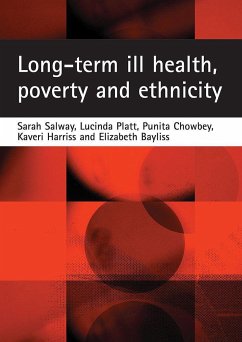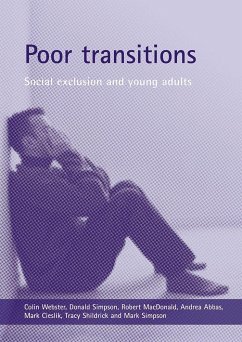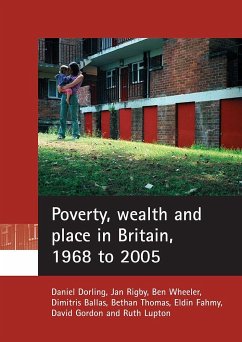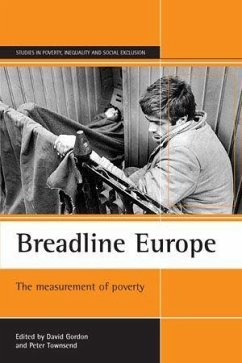Nicht lieferbar
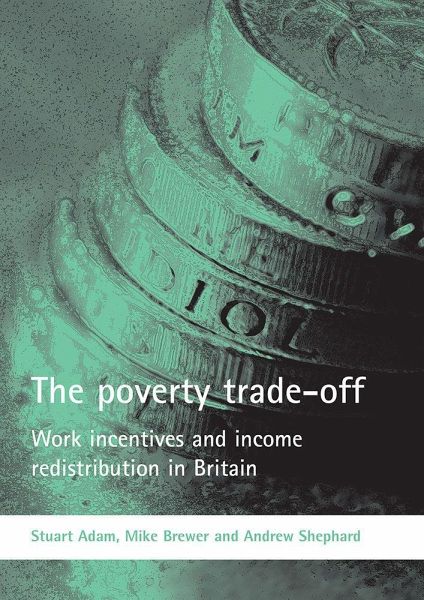
The Poverty Trade-Off
Work Incentives and Income Redistribution in Britain
Versandkostenfrei!
Nicht lieferbar
Two of the strategies that governments have to help people on low incomes providing direct financial support and encouraging them to earn more generally conflict. This report provides new evidence on the trade-off between redistributing income and improving work incentives. Drawing on large-scale survey data spanning the last 26 years, the report analyzes the incomes and work incentives facing thousands of individuals and families, and how they are affected by the tax and benefit system. The report shows how work incentives vary across the population and how this has changed since 1979, estima...
Two of the strategies that governments have to help people on low incomes providing direct financial support and encouraging them to earn more generally conflict. This report provides new evidence on the trade-off between redistributing income and improving work incentives. Drawing on large-scale survey data spanning the last 26 years, the report analyzes the incomes and work incentives facing thousands of individuals and families, and how they are affected by the tax and benefit system. The report shows how work incentives vary across the population and how this has changed since 1979, estimates how far tax and benefit reforms have been responsible for changes in work incentives, compares these trends with trends in poverty and inequality, and examines how various policy options for the future would affect the distributions of both income and work incentives. (REPORT)




